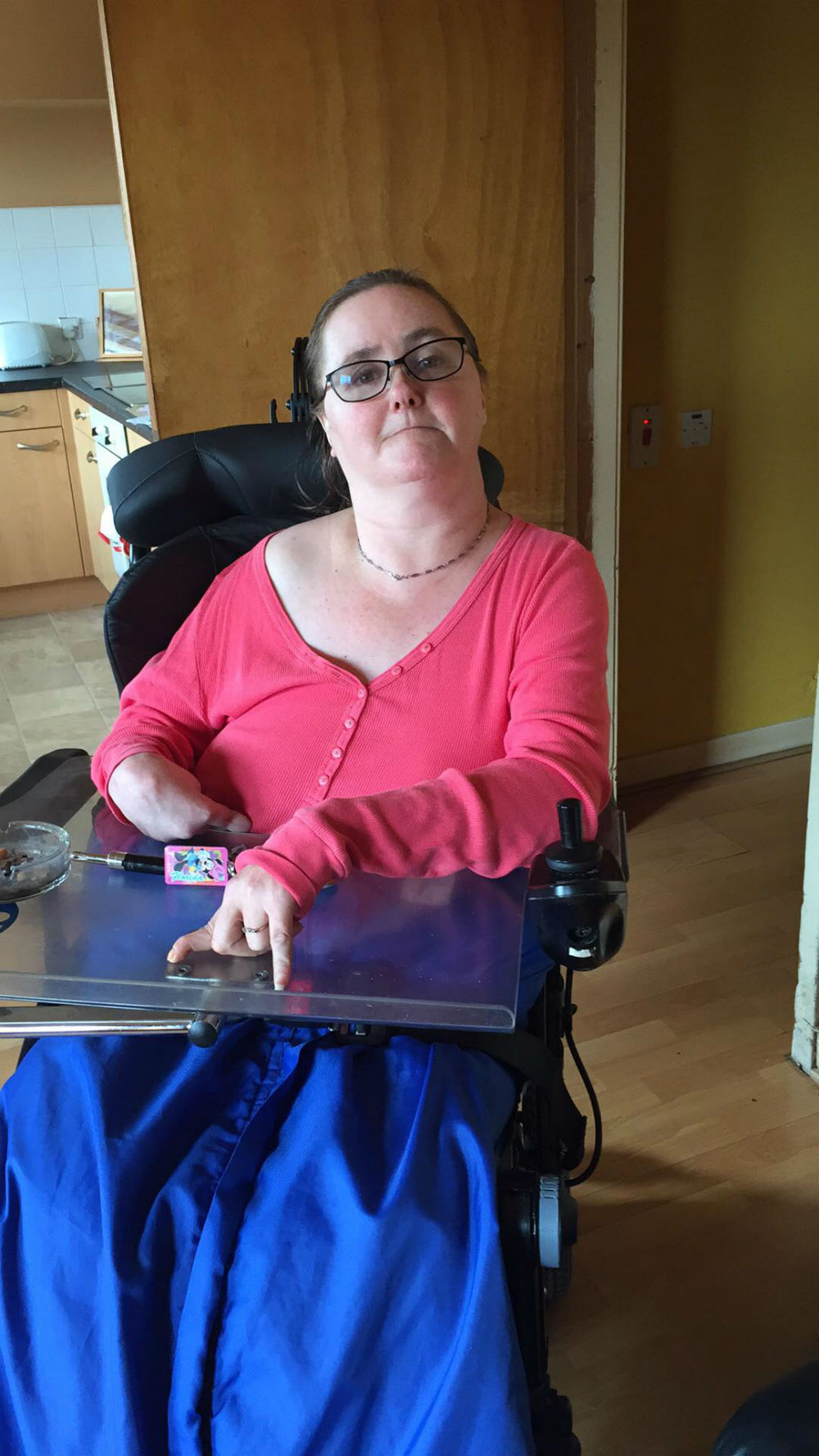A SEVERELY disabled woman has hit out after her care was cut from over 22 hours a day to just nine.
Susan Mccosh, who can’t cook, eat or go to the toilet by herself, will also be left completely on her own overnight.
Susan, from Dalkeith, Midlothian, has cerebral palsy and has had the same care in place for over 20 years.
But the 48-year-old was told, following a two-hour meeting with a new social worker, that her care was being slashed to save cash.
The 157.5 hours a week of care she has had for two decades – and average of 22.5 a day – is being reduced to just 63 hours a week, or nine hours a day.
Susan hit out at her care providers as she struggles to cook, wash or go to the toilet unaided.
And, as she is unable to pay for care herself, Susan has said she will just have to “try and cope” as her care needs increase.
In response the joint health and social care board, run by the NHS Lothian and Midlothian Council, said it is vital they run a “sustainable service” and that “difficult decisions have to be made”.

Cerebral palsy is a lifelong condition that affects movement and coordination. Cerebral palsy can affect sufferers differently as it is caused by a lack of oxgyen and can depend on where the damage occurs.
For Susan, all four of her limbs are affected and she can’t use them. She explained: “For me my muscles are in spasm most of the time.
“This means that it is very difficult to move my arms legs and most of my body.
“As a result I have chronic pain to varying degrees all day. I’m on very strong medication but although it helps the pain is always there.
“I can’t bear weight and I can’t get in or out of bed, dress, undress, wash or shower. I can’t go to the toilet, brush my hair cook or make any food.
“Sometimes I even struggle to get a fork up to my mouth and I need all of my food cut up.
“I’m just going to have to try and cope with what is assigned. I couldn’t afford to sustain the level of care I need long term myself.
“My needs have increased over this time and now my package is being halved.”
Susan met with a new social worker as part of a five year review of her care.
She said: “In my case a social worker I don’t know and had never met was assigned my case. He met me for a total of two hours.
“From that he determined what I needed.
“Social work appear only to be interested in any details which can help them achieve the savings they have to make.
“They are not interested in how you feel, how you will cope or if you will cope.
“Social work was started, I thought, to help people in various circumstances and safeguard their safety and human rights.
“Where is my help? And obviously my human rights don’t matter to them. But I need my benefits to have a life.”

Susan’s care is provided by the Midlothian Intergrated Joint Board, a partnership between the NHS and Midlothian council.
A spokesman for the board said: “It is normal practice to review care packages to ensure they are appropriate to the needs of the individual, recognising that needs can change over time.
“Decisions to change the amount of support someone receives are only taken after their care needs and eligibility for social care are assessed.
“Our eligibility criteria ensures we provide support equitably and that our limited budget is targeted at those who are most in need.
“As the fastest growing local authority in Scotland it is vital we run a sustainable service for the benefit of all the residents who rely on us now, as well as those who may rely on us in the future. To do that – difficult decisions have to be made.”

